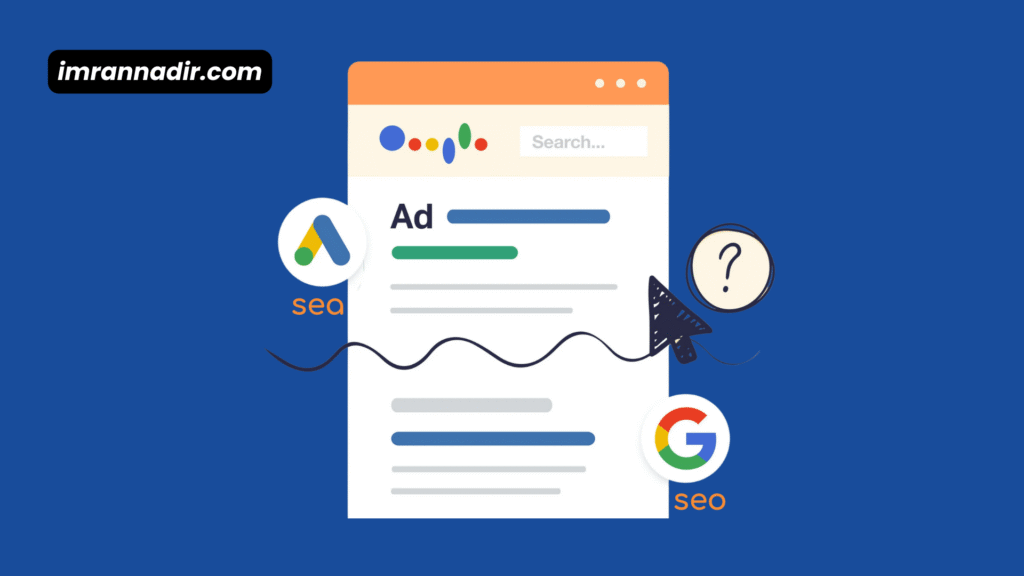If you’re running Google Search Ads (SEA) and wondering whether they can improve your SEO rankings, you’re not alone. This is a common question in digital marketing—and one that sparks quite a bit of discussion.
Let’s break it down with clarity and facts.
What Is SEA vs. SEO?
Before diving in, let’s clarify the two terms:
- SEA (Search Engine Advertising): Running paid search ads through platforms like Google Ads to appear in sponsored listings.
- SEO (Search Engine Optimization): Optimizing your website to rank higher in organic (non-paid) search results.
Does Running SEA Improve SEO Rankings?
Short answer: No, not directly.
Google has officially stated that paid search ads do not directly impact your organic rankings. The algorithms used to rank organic search results are completely separate from the systems that handle paid advertising.
So, if you’re hoping that a spike in traffic from ads will boost your SEO—that alone won’t do the trick.
But What About Indirect Effects?
Now here’s where things get interesting: while SEA doesn’t directly improve SEO, it can have indirect benefits that influence your organic performance over time.
1. Increased Brand Visibility = More Searches
When people see your brand name in a paid ad—even if they don’t click—they become more familiar with you. Later, they might search your brand name or keywords related to it. These branded searches can positively impact your organic traffic.
2. User Engagement and Return Visits
Let’s say someone clicks on your ad, visits your site, and likes what they see. They might return later via an organic search. These return visits signal relevance to search engines—boosting trust and potentially improving rankings.
3. Improved Click-Through Rates (CTR)
Running search ads and appearing in both paid and organic results can increase overall CTR. A higher CTR on your organic results can, over time, influence how Google ranks your pages.
4. Faster Testing and Insights
SEA allows you to test messaging, landing pages, and CTAs rapidly. The insights you gain can then be applied to your SEO strategy—improving the performance of your organic pages.
So… Should You Run SEA to Boost SEO?
Only if it fits your larger marketing goals.
If you’re a small business or just getting started, don’t expect a huge organic SEO boost just because you’re running ads. SEA is great for visibility, traffic, and quick wins, but SEO is a long game that requires consistent effort.
Final Thoughts: A Balanced Approach Wins
SEO and SEA aren’t competitors—they’re teammates.
While SEA won’t directly move the needle for your organic rankings, the two can work hand-in-hand to grow your brand, increase visibility, and generate more traffic over time.
If you’re serious about growth, don’t treat SEO and SEA as isolated strategies. Use them together. Monitor the impact. Optimize based on real data. And always focus on providing genuine value to your users.
Need Help Growing with Google Ads or SEO?
Need help aligning your SEO and SEA strategies for maximum growth?
📩 DM me or book a free consult—let’s unlock the real potential of your marketing efforts!
FAQs
Q1: Does Google boost my rankings if I run ads?
A: No, Google’s organic rankings are separate from paid ads. Ads don’t directly influence your SEO.
Q2: Can running ads help my SEO in the long term?
A: Yes—indirectly. Ads increase brand awareness and traffic, leading to more searches and visits that can help your SEO over time.
Q3: Should I invest in both SEO and SEA?
A: Absolutely. SEO builds long-term organic traffic, while SEA drives quick visibility and insights. Used together, they create a powerful marketing strategy.
Q4: What’s more cost-effective: SEO or SEA?
A: SEO is more cost-effective long-term, but slower. SEA gives faster results but at an ongoing cost. A hybrid approach is usually best.
Q5: Can SEA help me test SEO strategies?
A: Yes! SEA is great for testing keywords, landing page performance, and messaging before committing them to long-term SEO efforts.
Subscribe to Imran Nadir‘s blog with your email (Is it too much too ask?);


